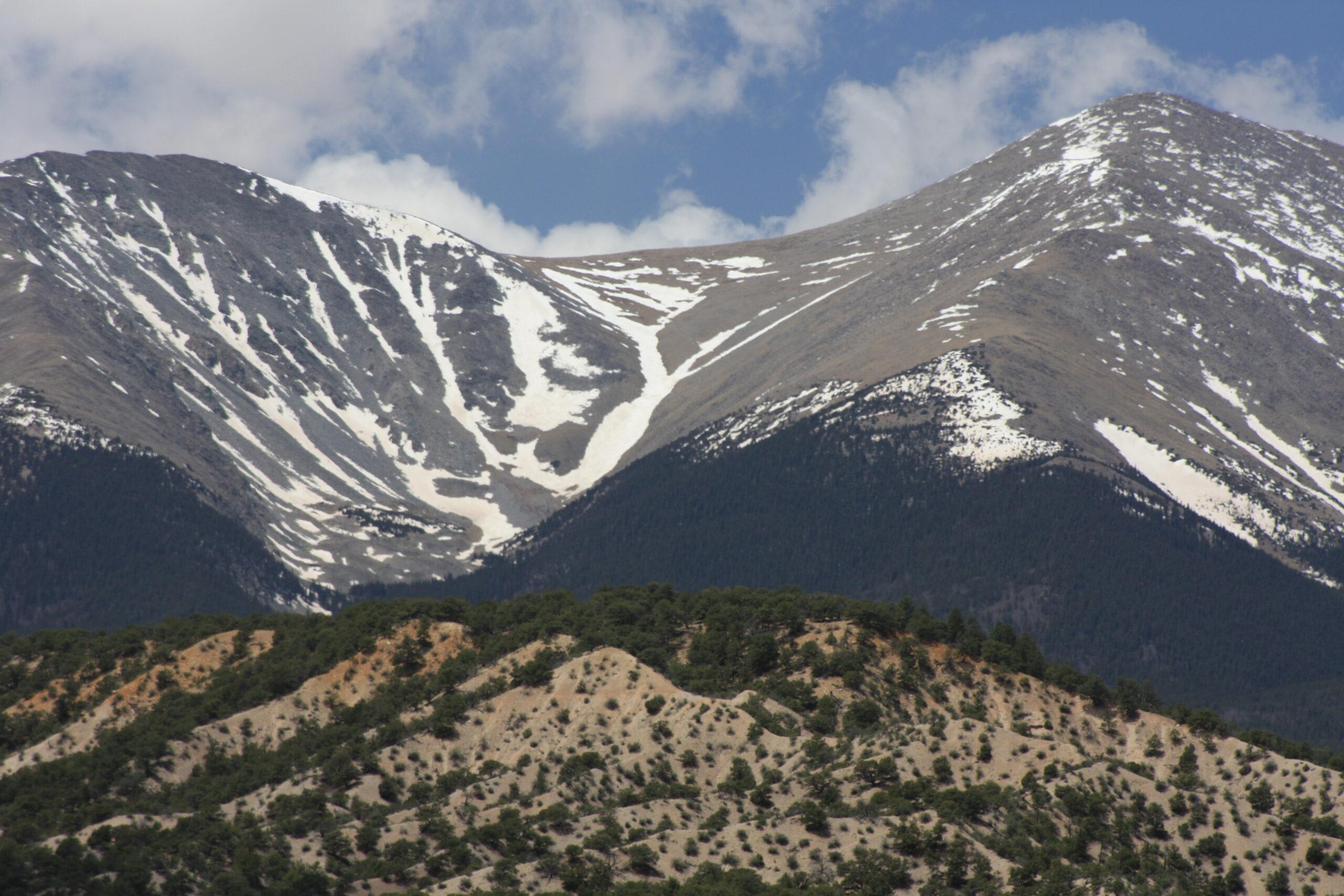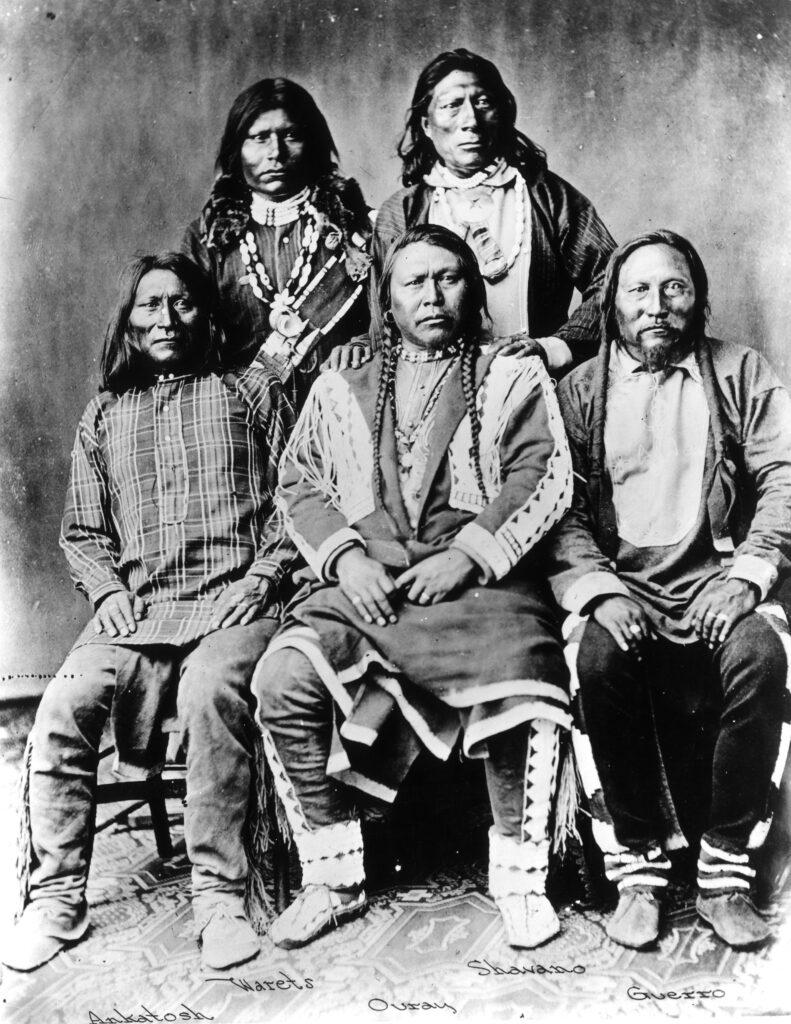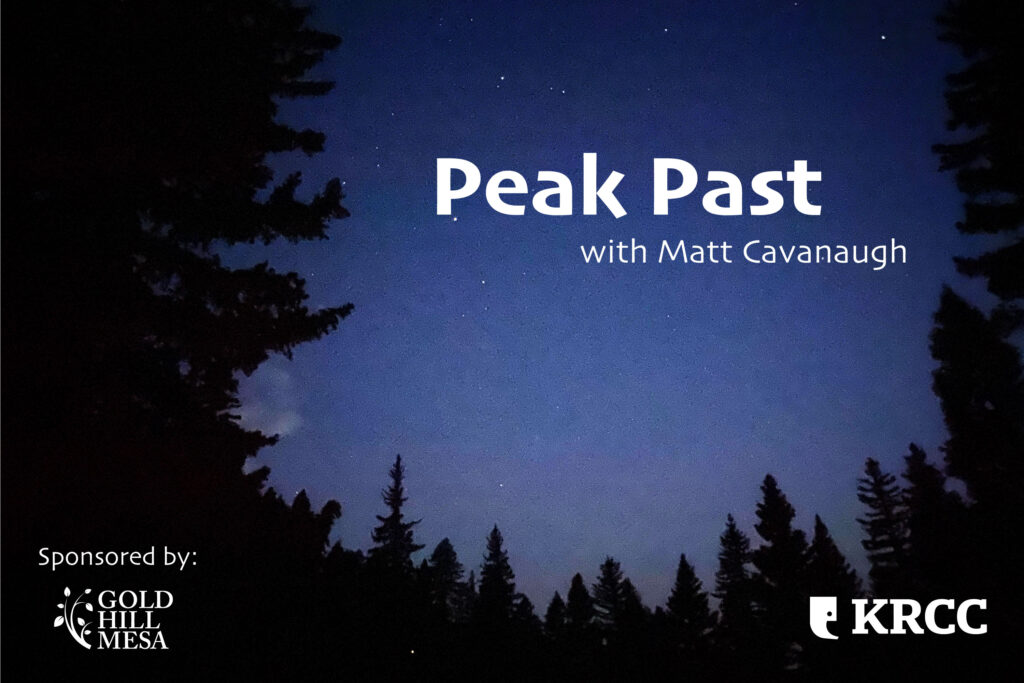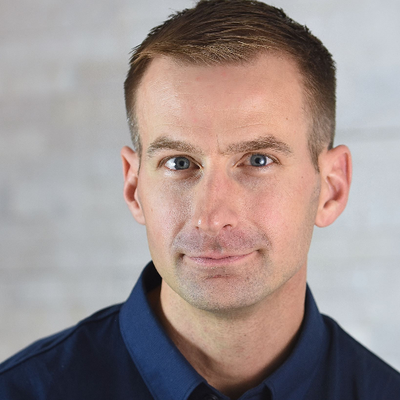
The following is part of KRCC's 'Peak Past' essay series.
There's at a peak northwest of Salida, that some say, in the springtime, after the snow starts to melt, has an angel gracing its side.
The angelic icon kneels on Mount Shavano, the southernmost Fourteener of the Sawatch Range. The northernmost Fourteener in the same range is the Mount of the Holy Cross. An angel on one end, a cross on the other — from the standpoint of Christianity, that’s about as spiritual as you can get.
According to author Jeri Nordgren, Mount Shavano is named for a Ute war chief named “Tarbiochaket,” a name he never really went by. French fur traders called him “Chavaneaux,” which translates as “blue flowers,” but was Americanized in pronunciation and spelling to the current “Shavano.”
He was war chief to Chief Ouray of the Tabeguache band of Utes in the 1850s and beyond. While we don’t have much on his early years, we do have little pieces that tell us something about who this impressive figure was.

In the late 1860s, Chief Shavano helped Kit Carson interrupt a young Ute warrior who wanted to attack some white settlers and likely prevented violence. In 1873, he was part of a mediation process that kept the Colorado Territory from open conflict between miners and the Utes, opening up Colorado to more mining, but also keeping peace.
In the late-1870s, Chief Shavano and Chief Ouray tried and tried and tried again to represent the Ute people in Washington, in an effort to keep diplomacy alive, in the hope that their way of life would not be lost.
Ultimately, the Utes were forced from Colorado onto a reservation in eastern Utah in 1881, where Shavano died in 1886.
But Shavano’s name lives on in that 14,231-foot mountain, 18th-highest among Colorado’s Fourteeners. He’s got company too—his friend’s namesake, Mount Ouray, is just a little to the south.
Until our next mountainside chat — be good, be well, and no matter what, climb on.

Peak Past (formerly Peak Perspectives) is a weekly segment written and voiced by Matt Cavanaugh, a lieutenant colonel in the U.S. Army and a resident of Manitou Springs where he lives with his wife and two young children. Through his writing, Cavanuagh explores life in the Pikes Peak region, including the gradients and subtleties of our lives in the shadow of America's Mountain.
You can find more work by Cavanaugh here.
KRCC's Abigail Beckman manages the "Peak Past" series. The opinions expressed in this publication are those of the authors. They do not purport to reflect the opinions or views of KRCC or Colorado Public Radio.
Peak Past is sponsored by Gold Hill Mesa.








